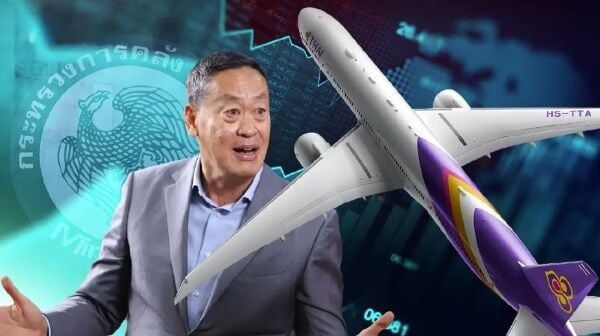THAI set for shock stock market comeback: PM Srettha

Prime Minister Srettha Thavisin ordered from the Finance Ministry an expedited rehabilitation plan for Thai Airways International Plc (THAI) to see the national carrier relisted on the Stock Exchange of Thailand (SET) by the end of this year, according to a ministry insider.
Originally slated for a stock market return in April or May next year, THAI’s accelerated timeline is driven by recent positive performances, said the Thai prime minister.
“THAI has shown promising results, thanks to profits from asset sales and robust business outcomes.”
The airline has benefited from a surge in tourist arrivals, boosted exports, extensive employee layoffs, and salary restructuring, which have significantly reduced operational costs.
“Re-entering the SET early will inject vitality into the Thai stock market. Furthermore, the government prefers THAI to be overseen by a new board of directors, as opposed to the current rehabilitation management committee. This shift would provide greater flexibility in the airline’s operations.”
The Finance Ministry, holding a nearly 48% stake in THAI, plans to reduce its shareholding to 40%. This move would reclassify the airline from a state enterprise, thus liberating it from restrictive regulations and enhancing its competitiveness in the cutthroat aviation industry.
In the first quarter of this year, THAI reported a total revenue of 45.8 billion baht, a 17.8% increase from the previous year’s 38.9 billion baht, with a net profit of 2.5 billion baht.
However, the airline’s operating profit plummeted nearly 79% to 11.1 billion baht, primarily due to exchange rate losses and aircraft impairment. Like many airlines, THAI faced severe challenges during the pandemic, with debts soaring to 200 billion baht by September 2020, reported The Nation.
The Central Bankruptcy Court approved a recovery plan in September 2020, as global travel restrictions grounded most of its fleet.
In related news, THAI successfully sold its entire fleet of 18 retired aircraft, including six Boeing 777-200s, six Boeing 777-300s, and six Airbus A380s. This major move marks a significant step in the airline’s restructuring strategy.
Latest Thailand News
Follow The Thaiger on Google News:


























